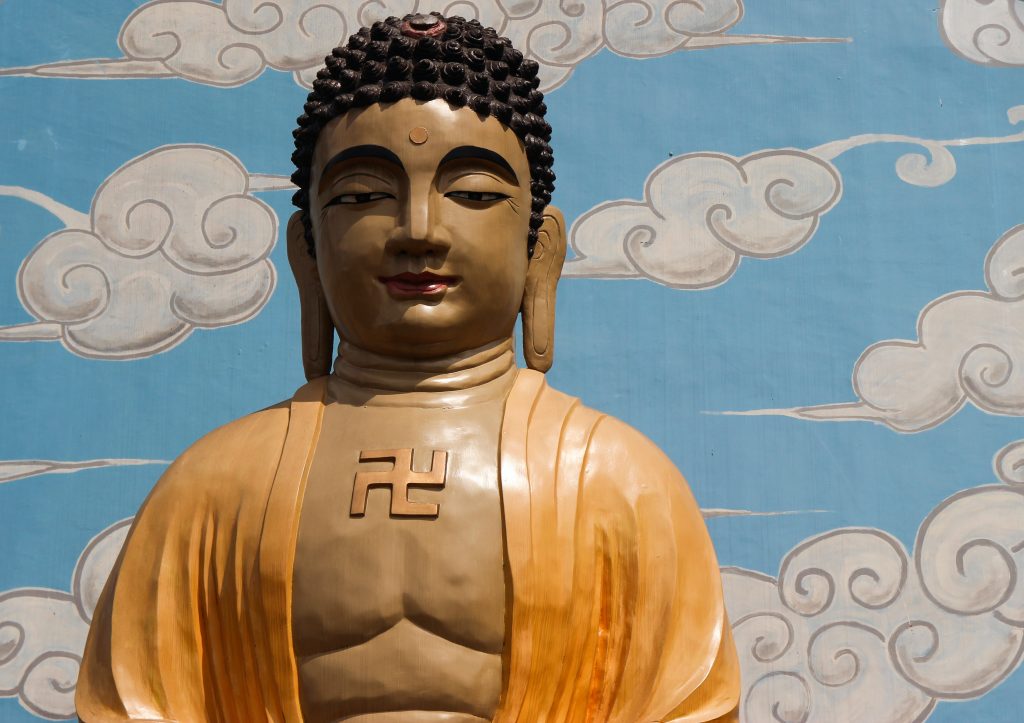Vegetarianism in Taiwan
We get a lot of vegan and vegetarian cyclists asking us about the food in Taiwan so we decided to delve a little deeper into the history and culture of meat-free diets in Taiwan – we’re talking sùshí (no, not that sushi!)
素食 sùshí- vegetarian food
(this word translates literally to ‘simple/unadulterated food’)
As more people in the West switch to a vegetarian or vegan diet for health and/or ethical reasons, Western understandings and practices of these diets have begun to take centre stage in the global discourse. What is often overlooked is that various ‘no-meat’ practices have been an entrenched part of people’s lives across the globe for centuries, especially here in Taiwan.
Whilst Taiwan may be smaller and less well-known than its neighbours, its food culture is second to none. Emigration, trade and colonisation from the early 16th century to the present day has created an incredibly diverse food culture within Taiwan and this is reflected in the meat-free cuisine on offer in the country. From Western-style ‘burger’ joints with fake melty-cheese, cutesy vegan dessert cafes showcasing new takes on familiar desserts and strict Buddhist temple-run eateries which focus on food for meditation; the variety on display is staggering.
A rudimentary search on the ol’ Google reveals that Taiwan has the second highest population percentage of vegetarians after India. The country has one of the world’s most stringent regulations when it comes to the labelling of vegetarian and vegan products and it’s common for schools to observe a ‘no-meat school lunch’ day at least once a week.

There are multiple factors at play here but a large part in the widespread vegetarianism in Taiwan can be attributed to the historic presence on the island of religions, such as Buddhism or Taoism, and spiritual practices of vegetarianism, known as zhāijiāo, which have helped to create a culture where vegetarianism is accepted as a ‘normal thing to do‘. Vegetarianism is practiced as a religious observance, and many meat-eaters will also abstain from eating meat during extended periods of mourning (anywhere from a day to 3 years) or on days of religious importance.
Legend has it that thousands of years ago, having converted to Buddhism and struggling to abstain from eating meat, an emperor in China ordered his chefs to create an alternative to meat that would taste just as delicious. The chefs came up with various methods of imitating meat, including mian jin (wheat gluten, also known as seitan), and the practice spread in popularity amongst the emperor’s subjects . Fast forward a few centuries and jump to Taiwan, the general belief that Taoist deities are meat-eaters has contributed further to ‘fake meat’ being available pretty much anywhere for use in both temple offerings and Sunday-night dinner.

Now, when you do eventually visit Taiwan (with Pedal Taiwan, yes?) don’t be alarmed if you come across restaurant signs with swastikas – the Buddhist symbol is often confused for the nazi insignia (urgh) but in fact indicates that the restaurant prepares their food according to Buddhist principles of vegetarianism.
Note that the main branches of Buddhism in Taiwan allow the consumption of eggs and dairy – here’s a useful article on the Chinese characters to look out for . If in doubt, check with one of our friendly guides who will be able to make sure you’re not eating anything you don’t want to be!
(Read more about our lovely guide team here)



Now, when you do eventually visit Taiwan (with Pedal Taiwan, yes?) don’t be alarmed if you come across restaurant signs with swastikas – the budhhist symbol is often confused for the nazi insignia (urgh) but in fact indicates that the restaurant prepares their food according to Buddhist principles of vegetarianism.
Note that the main branches of Buddhism in Taiwan allow the consumption of eggs and dairy – here’s a useful article on the Chinese characters to look out for . If in doubt, check with one of our friendly guides who will be able to make sure you’re not eating anything you don’t want to be!
(Read more about our lovely guide team here)
We hope you enjoyed reading a little about the context of vegetarianism in Taiwan. We hope to be uploading some more content around the fantastic food in Taiwan and the cultural context it’s made in. Follow us in our socials, or get in touch with any comments!